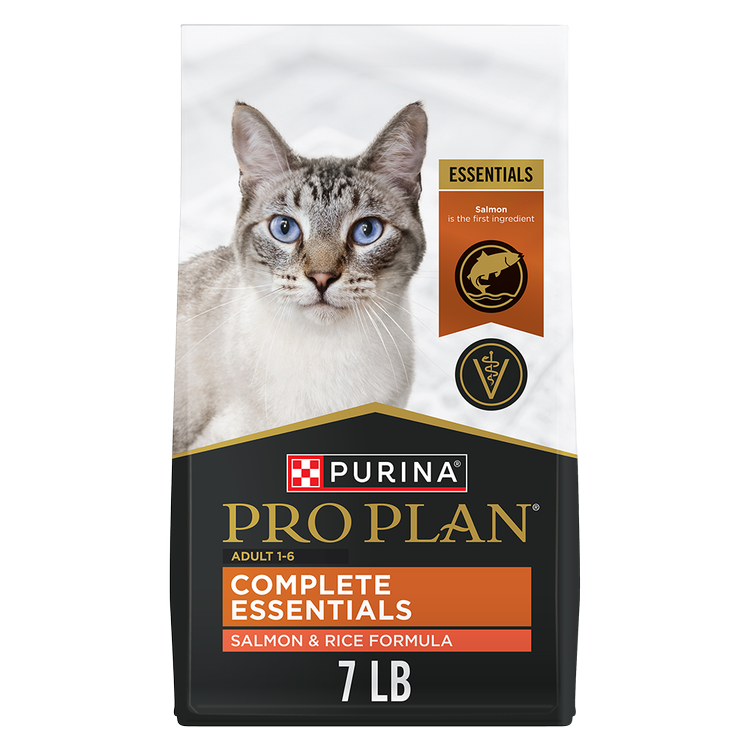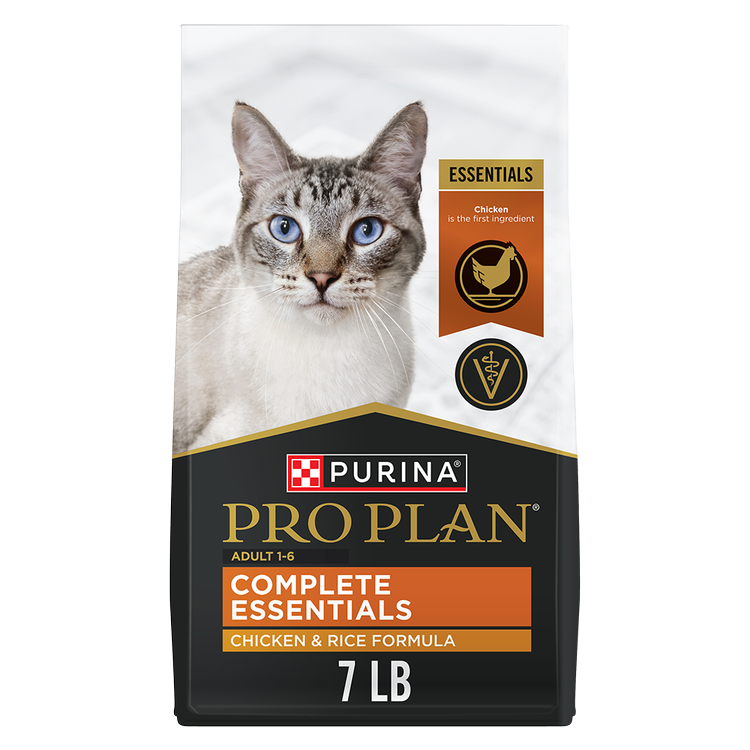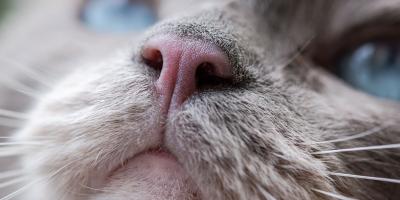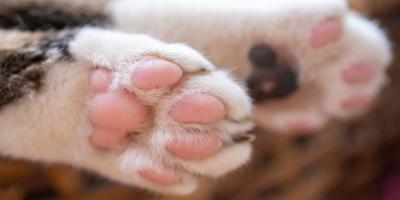Signs & Symptoms of a Stressed Cat


Cats have a reputation for being calm and composed (after all, the phrase “cool cat” was invented for a reason). While it’s true many felines can remain poised under pressure, the reality is they also experience stress.
Even if your pet generally seems anxiety-free, signs of a stressed cat can be less obvious than you think. Alternatively, stress can lead to unusual behavior such as avoiding their food or excessive meowing.
So, whether your cat always seems confident and healthy or has developed new, concerning habits, it’s important to understand the causes and symptoms of stress in cats.
Anxious Cat Symptoms
Knowing how to identify signs of a stressed cat is useful for pet owners.
Often, felines will hide their discomfort. This is a survival instinct inherited from their ancestors, as pain can be an indication of weakness to other predators.
Understanding your feline’s stress cues can also help you provide better care, since anxiety may be a symptom of underlying health issues.
Here are some common anxious cat symptoms:
- Excessive scratching or licking. Take note if your cat is aggressively grooming themselves, especially if it results in bald spots or irritated skin.
- Loss of appetite. Eating less than usual for an extended period of time is a red flag.
- More vocalization than usual. Meowing is your cat’s way of communicating with you. Excessive meowing or other vocalizations may mean they’re trying express their discomfort.
- Keeping their distance. Some cats prefer a little isolation but if your pet is actively trying to avoid you or other people and pets in the house, they may be stressed.
- Unusual aggression. Hissing or biting you or others can be a sign of anxiety.
- Other changes in behavior. Watch for behavior such as eliminating outside the litter box, restlessness or lethargy.
If you suspect your cat’s behavior may be tied to stress, ask your veterinarian for their input.
Causes of Stress in Cats
- A new family member or guest in the home. Cats are territorial. They may perceive the arrival of a new baby or visitor as a threat to their home.
- A new pet. The introduction of another cat or dog may trigger anxiety.
- Moving familiar objects. Changing the location of food and water dishes, litter trays or favorite furniture can disrupt your pet’s environment.
- Changing routines. Feeding time, your work schedule, playtime – these are routines your cat relies on.
- Traveling. Riding by car or plane may be unfamiliar, challenging experiences.
- Illness. Sickness can manifest itself in common anxious cat symptoms.
How to Reduce Cat Stress
If your cat’s stress is caused by an environmental reason, you may be able to reduce it through the following actions:
- Be thoughtful about the litter box. Being unable to access the litter box can be stressful. Make sure your cat’s box is big enough, located in a convenient area and refreshed often. If you have multiple cats, ensure you have enough litter boxes—one per cat, plus an additional box is ideal.
- Interact with your cat. Playing and cuddling with your cat can reduce stress. It may result in other physiological benefits for you and your pet as well.
- Increase water dish access. Many felines fail to drink enough water, and dehydration can lead to poor health and anxiety. Be sure to use wide, shallow dishes to avoid whisker irritation and fatigue and refresh it often. You can also try using a fountain or supplementing with wet cat food.
- Create a more cat-friendly environment. Most cats are driven to seek out activities such as scratching or perching. Consider adding a scratching post or providing a safe, elevated area where they can observe their environment.
- Give them a private safe space. Your pet may appreciate having an enclosed place in which to escape and relax if they feel frightened. This is especially important in households with multiple pets.
Stress-Reducing Products for Cats
Stress-reducing products for cats may ease your pet’s anxiety. There are some caveats to keep in mind, however:
Your cat’s stress can be caused by one or several reasons; each feline has their own needs and may respond differently to attempts to calm them; don’t necessarily expect any product to be a cure-all solution.
That said, here are some common products that may help:
- Calming Vests. These fit snugly around your pet and can be especially calming for high-strung felines.
- Pheromone diffusers. Typically, diffusers plug into the wall and emit a simulation of the pheromone of a mother cat, which may reduce stress.
- Food puzzles. Puzzles require your cat to engage their minds and bodies to access their food. This kind of focused activity can calm a restless cat.
Remember, if you see signs of a stressed cat that can’t be easily resolved, contact your veterinarian for guidance.
Want more tips on cat health and behavior? See what our experts have to say on our Pet Expertise page.
Related articles

Earn myPurina Rewards with Every Purchase
Use your points for treats, toys, and gift cards with myPurina app.






